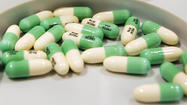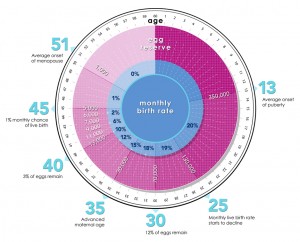 Thanksgiving dinner has turkey and cranberry sauce along with pumpkin pie. Christmas rings in the end of the year with egg nog and ginger bread cookies. During the holiday season, it can be difficult to resist these delicious treats. However, a new study shows that it may be better to avoid these tempting dishes and strike out on a more nutritious diet, particularly if you happen to be a middle-aged woman.
Thanksgiving dinner has turkey and cranberry sauce along with pumpkin pie. Christmas rings in the end of the year with egg nog and ginger bread cookies. During the holiday season, it can be difficult to resist these delicious treats. However, a new study shows that it may be better to avoid these tempting dishes and strike out on a more nutritious diet, particularly if you happen to be a middle-aged woman.
Researchers from the University of Colorado Cancer Center recently revealed that maintaining a healthy lifestyle during menopause could help reduce the risk of breast cancer later on.
To begin, females who are obese and postmenopausal have a greater risk of later developing breast cancer. They also found that the cancer that these women get can be more aggressive than for their healthier counterparts. The findings of the study were recently featured in the journal Cancer Research.
The team of investigators was interested in exploring ways of limiting the risk for breast cancer.
“By using nutrient tracers for fat and sugar, we tracked where the body stored excess calories. In lean models, excess fat and glucose were taken up by the liver, mammary and skeletal tissues. In obese models, excess fat and glucose were taken up by tumors, fueling their growth,” explained the study’s lead author Erin Giles, a postdoctoral researcher at the Cancer Center, in a prepared statement. Read full article.



